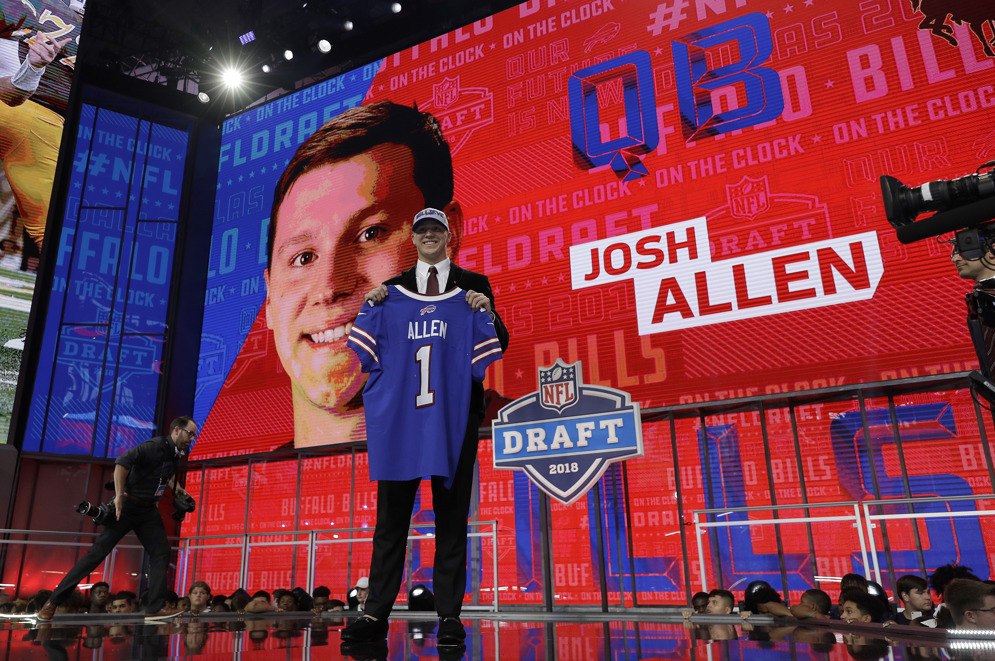To some, the NFL Draft serves as the “final exam” for measuring the skill that each club has at determining and choosing talent.
Clubs draw from thousands of scouting reports, medical evaluations, and personal interactions to decide which players can turn around a franchise or fill gaps to make a good team into an exceptional one.
Before clubs select a single player, NFL Football Operations goes through an exhaustive process of verifying players’ draft eligibility. This means that the NFL’s Player Personnel department researches and verifies the educational and athletic participation history of thousands of players that may be eligible for the Draft. League staff review college teams’ media guides and websites, contact college coaches, compliance officers and football administrators, and communicate with the student-athletes.
In recent years, the number of underclassmen who have applied to gain early entry into the Draft (“special eligibility”) has steadily increased. In certain cases, it may be the player’s best move; in most, though, the player may be drafted lower than he anticipated, or not at all. In these cases, the player has now forfeited the rest of his college eligibility and has given up his best chance to earn a degree while improving his football skills.
Only 1.6% of all NCAA football players ever make it to the professional level.
To help both the clubs, who want NFL-ready players in the Draft, and the student-athletes, who are looking to enter the Draft early, the NFL relies on its College Advisory Committee. The Committee, which includes high-level personnel evaluators from NFL clubs and directors from the league’s two sanctioned scouting organizations (National Football Scouting and BLESTO), advises underclassmen on their draft prospects before they make a formal request to the league to join the Draft.

Buffalo Bills quarterback Josh Allen, was selected out of Wyoming with the seventh overall pick of the 2018 NFL Draft. In 2017, Allen was evaluated by the College Advisory Committee and advised to stay in school. (AP/David J. Phillip)
The College Advisory Committee’s process for determining whether underclassmen are ready for the NFL changed in 2014. Under the revised NFL guidelines, a college can request evaluations for only five players, with exceptions determined on a case-by-case basis; previously, there was no limit on the number of players from one team who could be reviewed.
The ratings system was revised as well. In previous years, the Committee would evaluate players in one of five categories: potential first-round pick, potential second-round pick, potential third-round pick, no potential for the first three rounds or no draft potential at all.
The new ratings are much simpler: potential first round, potential second round, or neither, which is effectively a recommendation to stay in school.
If a student-athlete’s goal is to play in the NFL, his best chance at success may be to stay in school, earn his education, improve his Draft position and complete his college football eligibility.
“While some like to debate the advantages of declaring early for the draft, one thing is for certain: Completing your education affords you more opportunity and financial freedom beyond football.”
TROY VINCENT, Sr., EXECUTIVE VICE PRESIDENT, NFL FOOTBALL OPERATIONS
Ahead of the 2024 NFL Draft, 17 student-athletes were given first- or second-round evaluation. 13 of the 14 who declared for the Draft were drafted in the first two rounds.
The College Advisory Committee is extremely accurate when evaluating first- or second-round prospects who declare for the Draft.
|
Year |
Evaluation Accuracy |
Drafted in first two rounds |
|
2024 |
92.9% |
13/14 |
|
2023 |
88.2% |
15/17 |
|
2022 |
94.1% |
16/17 |
|
2021 |
91.7% |
11/12 |
|
2020 |
96.0% |
24/25 |
|
2019 |
84.2% |
16/19 |
|
2018 |
76.2% |
16/21 |
|
2017 |
90.9% |
20/22 |
|
2016 |
76.0% |
19/25 |
|
2015 |
90.0% |
18/20 |
|
2014 |
90.9% |
20/22 |
|
Total |
87.9% |
188/214 |
In 2024, 93 players were advised to remain in school by the College Advisory Committee (third-round grade or below). 22 of those 93 players declared for the 2024 NFL Draft after being advised to remain in school.
The average draft position of these players was consistent with the evaluations provided by the NFL clubs.
| Players Given a Remain-in-School Evaluation | ||
| Round Selected | 2023 | 2024 |
|
1 |
0 |
0 |
|
2 |
1 |
7 |
|
3 |
2 |
3 |
|
4 |
1 |
7 |
|
5 |
5 |
3 |
|
6 |
3 |
1 |
|
7 |
4 |
0 |
|
Undrafted |
5 |
1 |
| Weighted Draft Avg. | 5.86 | 3.64 |
“We want the student-athlete to make an informed decision,” said Troy Vincent, Sr. executive vice president of NFL Football Operations. “Use our resources and make an informed decision. Each institution has those resources for every prospect and every head coach. The numbers and the facts speak for themselves.”
The NFL encourages most underclassmen to finish their college eligibility and earn a degree while maturing as a professional prospect. Participating in the Draft means that an underclassman loses his remaining eligibility: If he is not selected by an NFL team, he will not be able to play another college season and he will not be able to improve his draft standing for the following year’s draft.
“Declaring for the Draft doesn’t guarantee success in the NFL,” said Vincent. “A College Advisory Committee evaluation will assist you in making an informed decision.”



